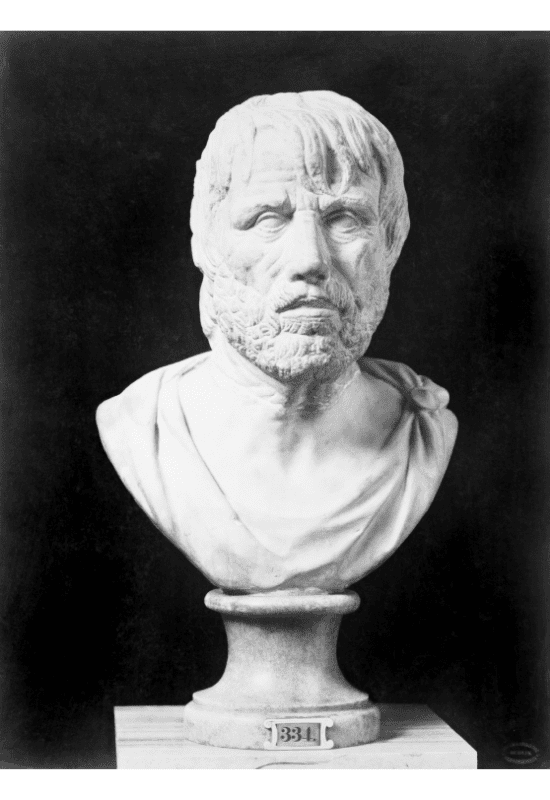The psychological phenomenon because of which Napoleon failed: Illusory superiority
Have you ever felt that you are smarter, more attractive, or more skilled than most people? If so, you may have had the experience of illusory superiority.
This is a psychological phenomenon in which people overvalue their own abilities or qualities. Illusory superiority can affect various aspects of our lives, such as our self-esteem, self-confidence, and social interaction.
Even famous historical figures fall victim to this phenomenon - for example, the then French emperor Napoleon Bonaparte. But why do we tend to inflate our self-image? And what are the consequences of unrealistic self-assessment? In this article, we will explore some possible explanations and implications of illusory superiority.
What is illusory superiority?
Illusory superiority is a psychological phenomenon in which people tend to overestimate their own abilities and underestimate those of others. Psychologists have studied this effect extensively and found that it is usually due to a combination of self-serving bias and an inability to compare one's own abilities with those of others.
How does illusory superiority work?
At its core, illusory superiority works by giving too much weight to our own successes - leading us to feel superior when compared to peers, even though we are not actually better than them. This often leads to unrealistic expectations when we compare ourselves to others, as people tend to replace an objective comparison with subjective beliefs about their own abilities - which in turn usually leads to feelings of disappointment or envy when then reality does not match what we imagined.
Other theories suggest that this behavior is mostly unconscious, as people are simply unaware of their actual position in comparison to others - especially if they have not made enough external comparisons or have not paid enough attention to the area in which they want to evaluate themselves. For example, someone might think they are a good driver just because they can drive well on local roads, without knowing how much better professional drivers can be on similar terrain.
Illusory Superiority is often accompanied by the Dunning-Kruger effect, by which one underestimates or overestimates one's abilities in a certain area, depending on how well one knows the subject matter, or not. We look at the Dunning-Kruger effect here in detail.
More examples of Illusory Superiority
A classic example of the disastrous effects that illusory superiority can have was Napoleon's campaign.
Of course, there were quite a few factors, but one that was certainly decisive was the effect of illusory superiority. Napoleon decided in 1812 to invade Russia with a huge army of about 600,000 soldiers. He seems to have believed that he was a superior military leader and strategist and that his army was invincible and loyal. Perhaps he also underestimated the challenges and difficulties of fighting in a vast and hostile territory against a determined and resilient enemy. Not to mention the Russian winter...
In any case, Napoleon's illusory superiority soon collided with reality. His army had to endure many privations and losses: Disease, starvation, desertion, guerrilla attacks by the enemy, and bad weather. The Russian army retreated and avoided direct confrontation, but burned crops and villages to cut off supplies to the attackers. When Napoleon finally reached Moscow, he found the city abandoned and set on fire. He waited for a peace offer that never came and then at some point decided to retreat. His retreat was to be even more disastrous than his advance, however, as he was beset by the Russian army and the winter cold. Of the 600,000 soldiers who invaded Russia, only about 20,000 returned alive.
Another example where illusory superiority can be harmful is when applying for a job. Many people believe they are more qualified, skilled, or experienced than they actually are, and apply for jobs that exceed their abilities. This can lead to both applicants and employers wasting time, resources, and opportunities. In addition, illusory superiority can prevent applicants from recognizing their weaknesses and improving their performance.
Advantages and risks
Recognizing how illusory superiority works can help us stay grounded and better focused on our goals - because it keeps us from getting into situations where we become overconfident and make mistakes that could have easily been avoided.
However, excessive awareness of this phenomenon can also cause some people to become overly depressed and underestimate themselves, which inadvertently keeps them from opportunities that they would have otherwise aced had they given themselves a chance.
To avoid illusory superiority, one should be aware of common signs and causes of this bias, such as egocentrism, focalism (the excessive focus on a particular prediction or assumption), and lack of feedback. In addition, one should seek objective evidence and feedback from others, especially those who are more educated or experienced in a particular area.
And we should be ready to admit our mistakes (by the way, this can make us more sympathetic, we this psychological phenomenon evidenced) and to learn from them, as well as to appreciate the strengths and achievements of others. In this way, we can develop a more accurate and balanced self-assessment and avoid the pitfalls of illusory superiority.
What about you? Is there a particular situation in which you have fallen victim to this psychological phenomenon?







